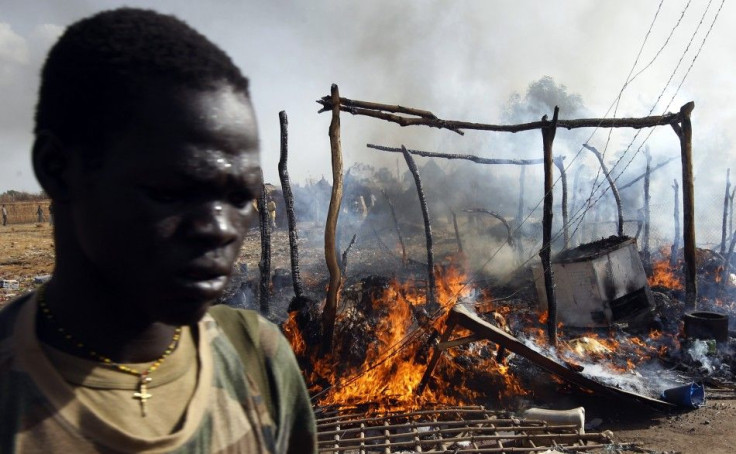War Looms As Sudan Rejects Peace Talks With South

Sudanese President Omar al-Bashir said Monday he refused to enter into peace negotiations with South Sudan as the North conducted a series of air strikes against southern targets along the oil-rich border region, which has been the site of ongoing skirmishes.
Mr. Bashir spoke while visiting the border town of Heglig, near a recently secured oilfield that had been seized by southern forces almost two weeks ago.
We will not negotiate with the South's government, because they don't understand anything but the language of the gun and ammunition, Mr. Bashir told troops stationed at military barracks in Heglig, Reuters reported.
The U.N. Security Council condemned the south's occupation of Heglig and the surrounding oilfields, internationally recognized as Sudanese territory, and demanded South Sudan's immediate withdrawal as well as a cessation of all hostilities between the two countries.
Sudan has claimed that it drove southern forces out of Heglig last Friday, while the South maintains it withdrew, a process it said it completed Sunday.
Border fighting continued throughout the withdrawal over the weekend, and on Monday Sudanese fighter jets bombed targets near the border city of Bentiu in South Sudan, reportedly killing at least three people, including a child.
Freelance journalist Hannah McNeish, in an interview with BBC News, described a bombing by two Sudanese MiG-29 jets near a bridge between Bentiu and a neighboring town, Rubkona.
There was another bomb that had fallen on Rubkona market, where there were three stores that had been completely destroyed and the charred body of a young boy was brought out, McNeish said.
The U.N. Security Council has called upon Sudan to stop airstrikes on southern territory, though the North has denied engaging in such actions.
South Sudan's deputy director of military intelligence, Maj. Gen. Mac Paul, said the aerial bombing amounted to a declaration of war, the Associated Press reported.
South Sudan formally separated from the north in July 2011, following over two decades of civil war. The mostly Islamic north controls oil refineries and pipelines leading to the Red Sea. The majority non-Islamic south is landlocked, but rich in oil reserves.
Both U.S. President Barack Obama and U.N. Secretary-General Ban Ki-moon have urged both sides to enter into peace talks and to end decades of conflict that have claimed roughly 2 million lives in the past 25 years.
In Darfur, Abyei, South Kordofan and the Blue Nile, the killing of innocents must come to an end, Mr. Obama said Monday, Agence France Presse reported. The presidents of Sudan and South Sudan must have the courage to negotiate because the people of Sudan and South Sudan deserve peace.
© Copyright IBTimes 2024. All rights reserved.





















